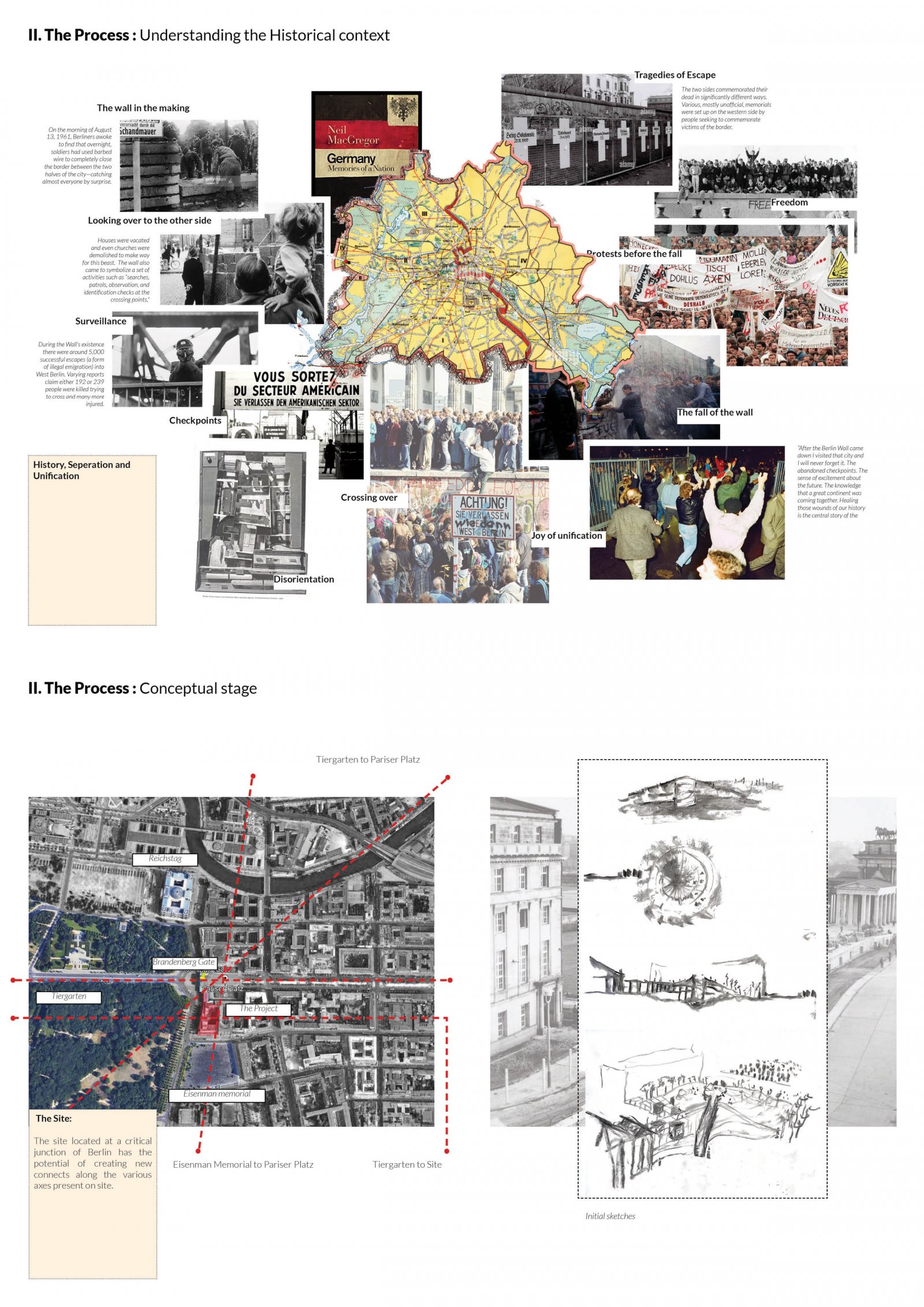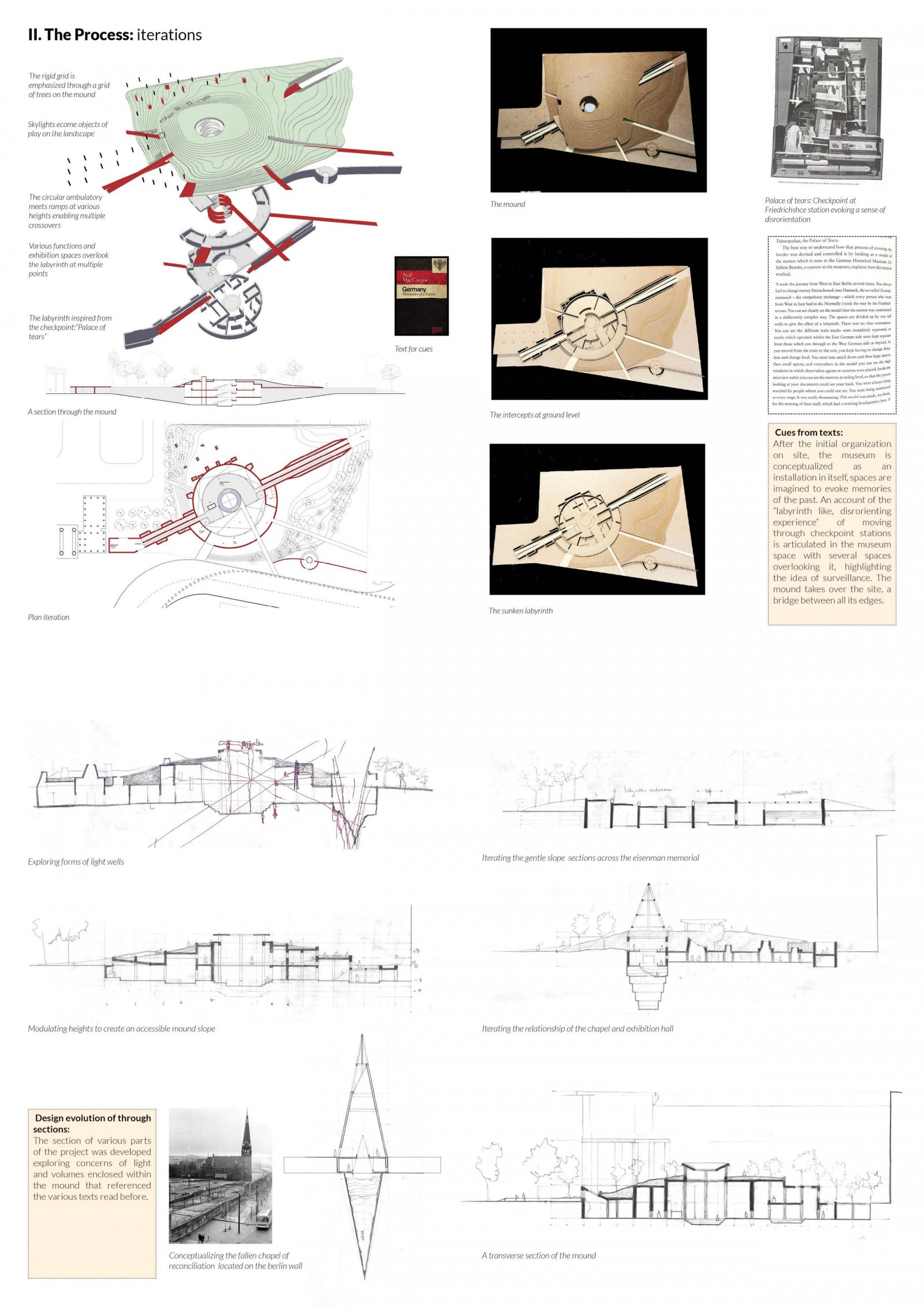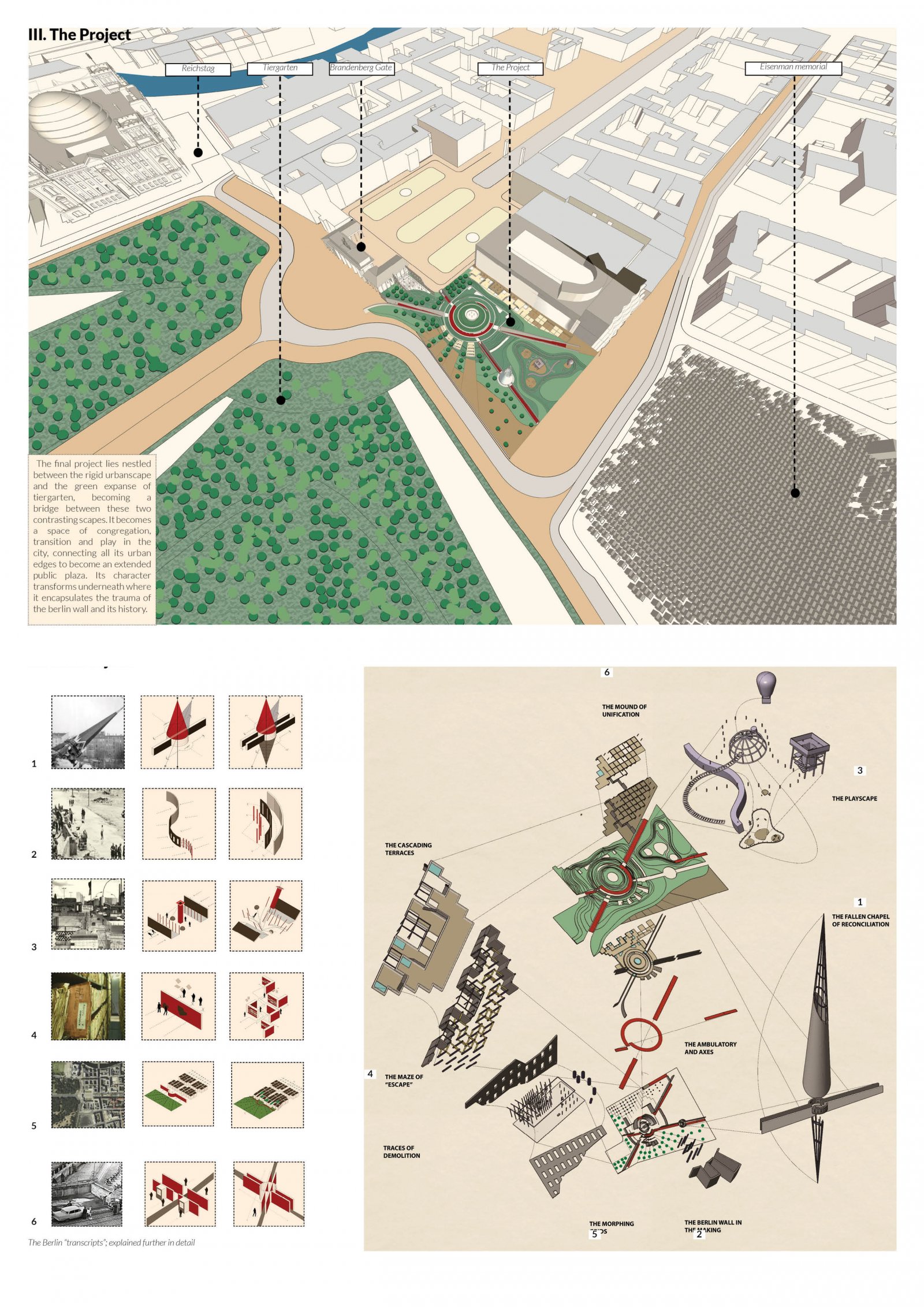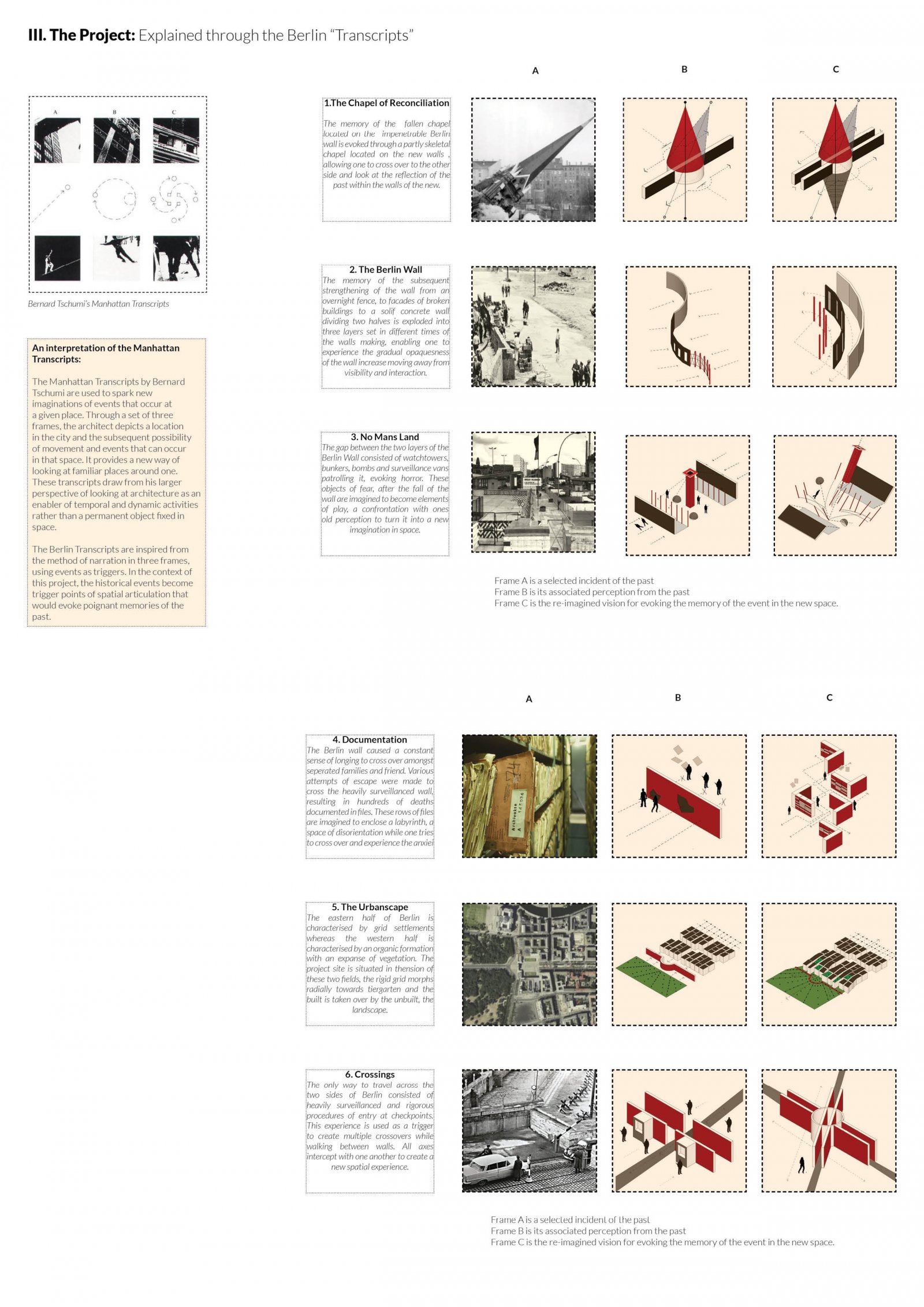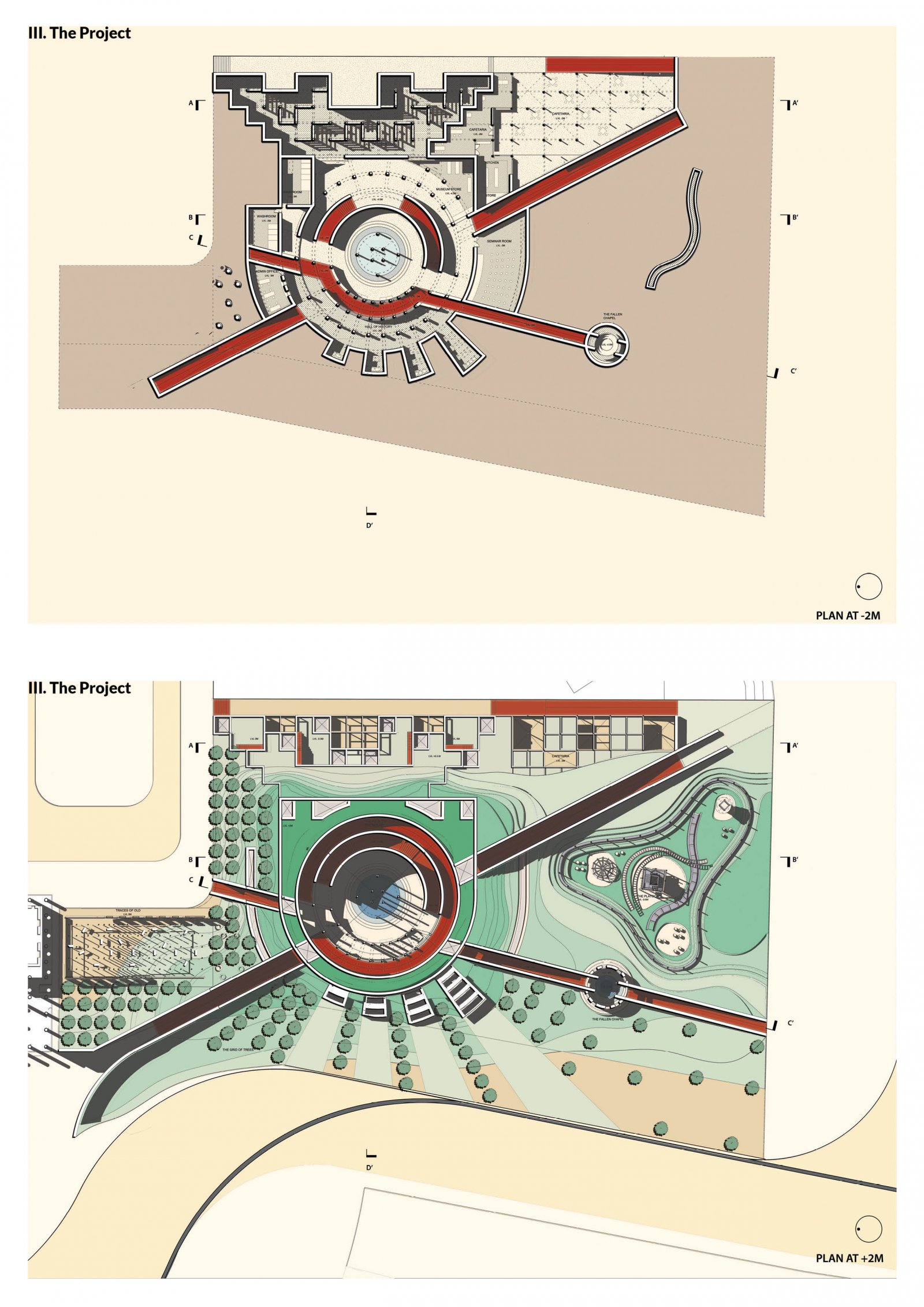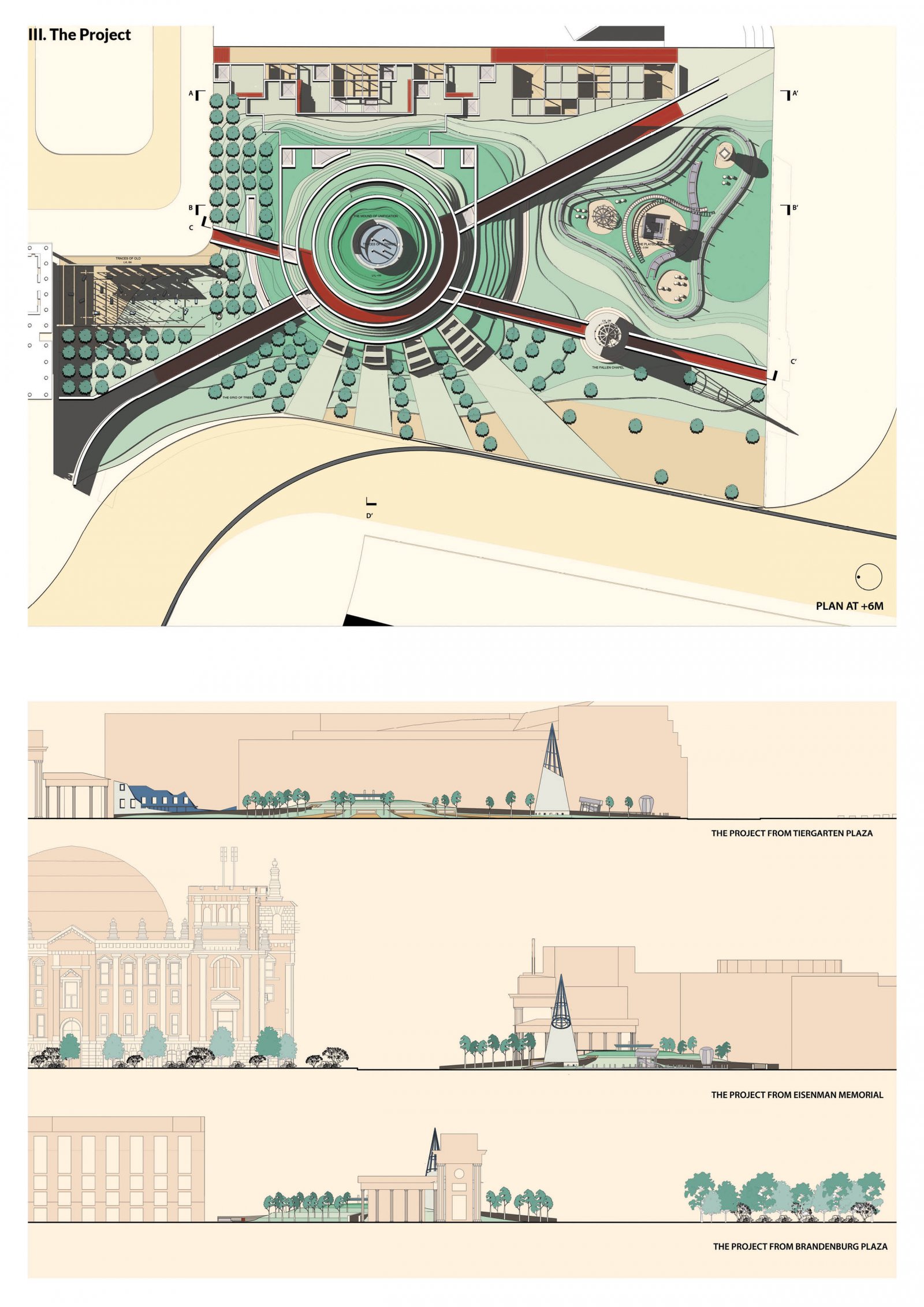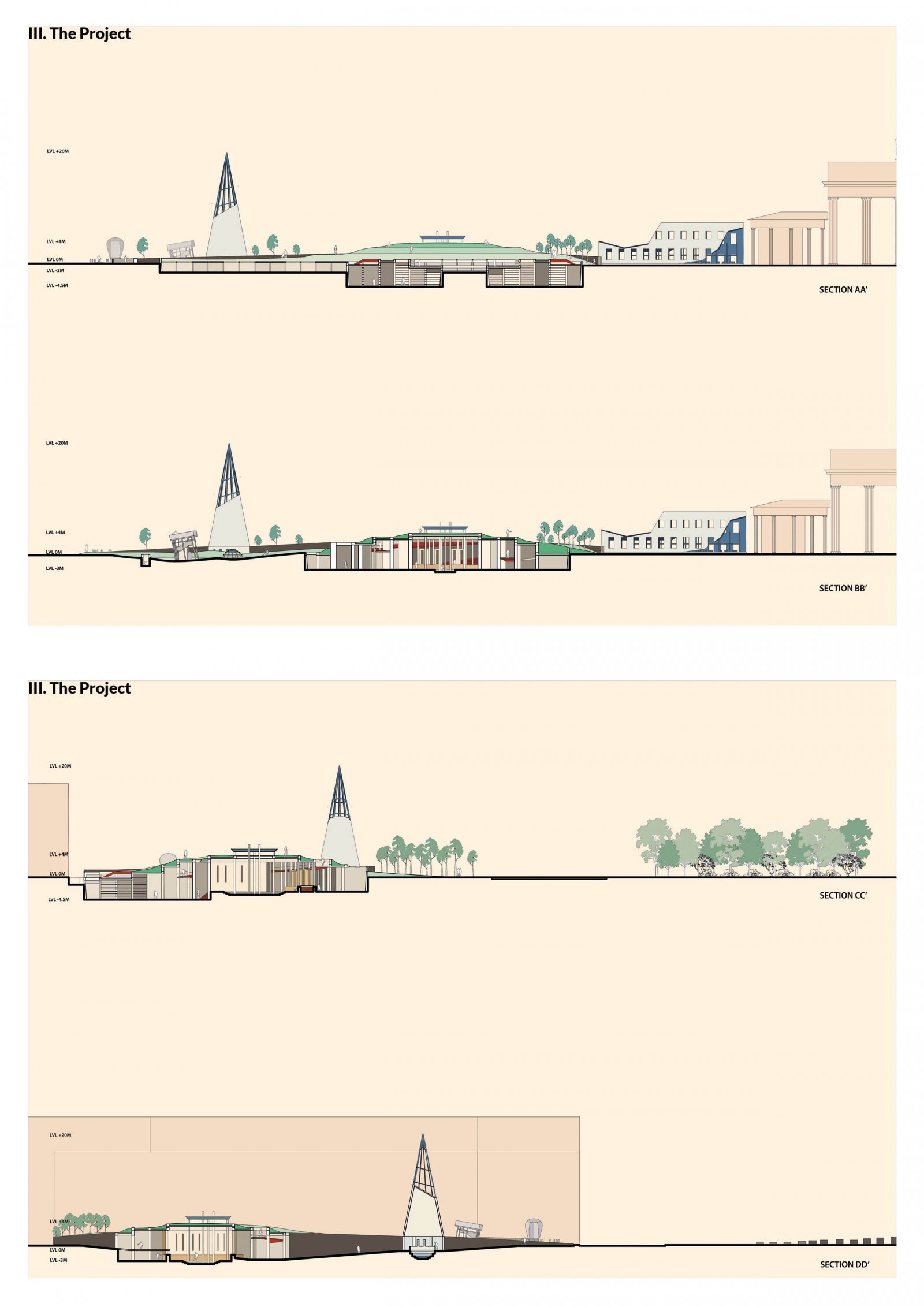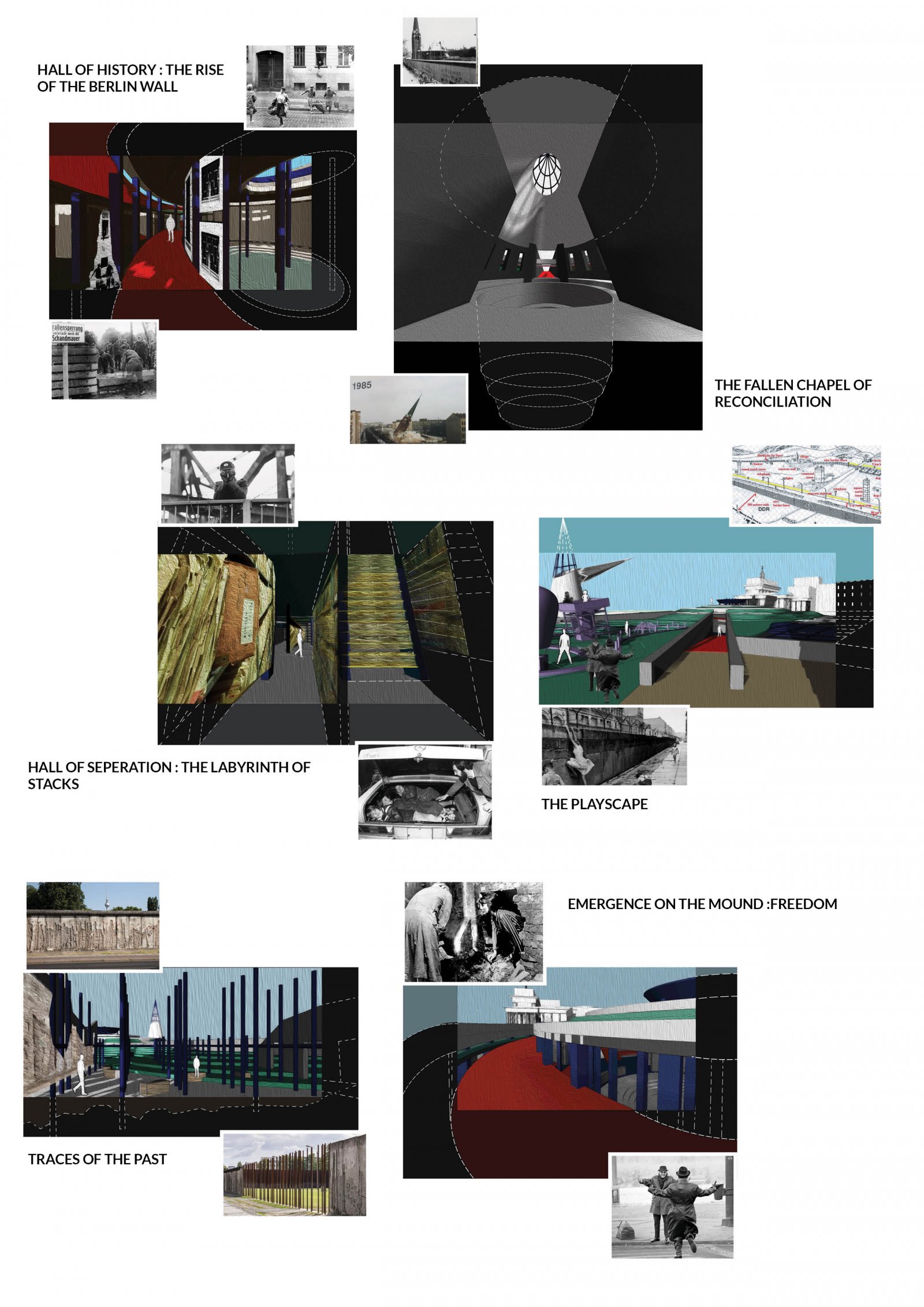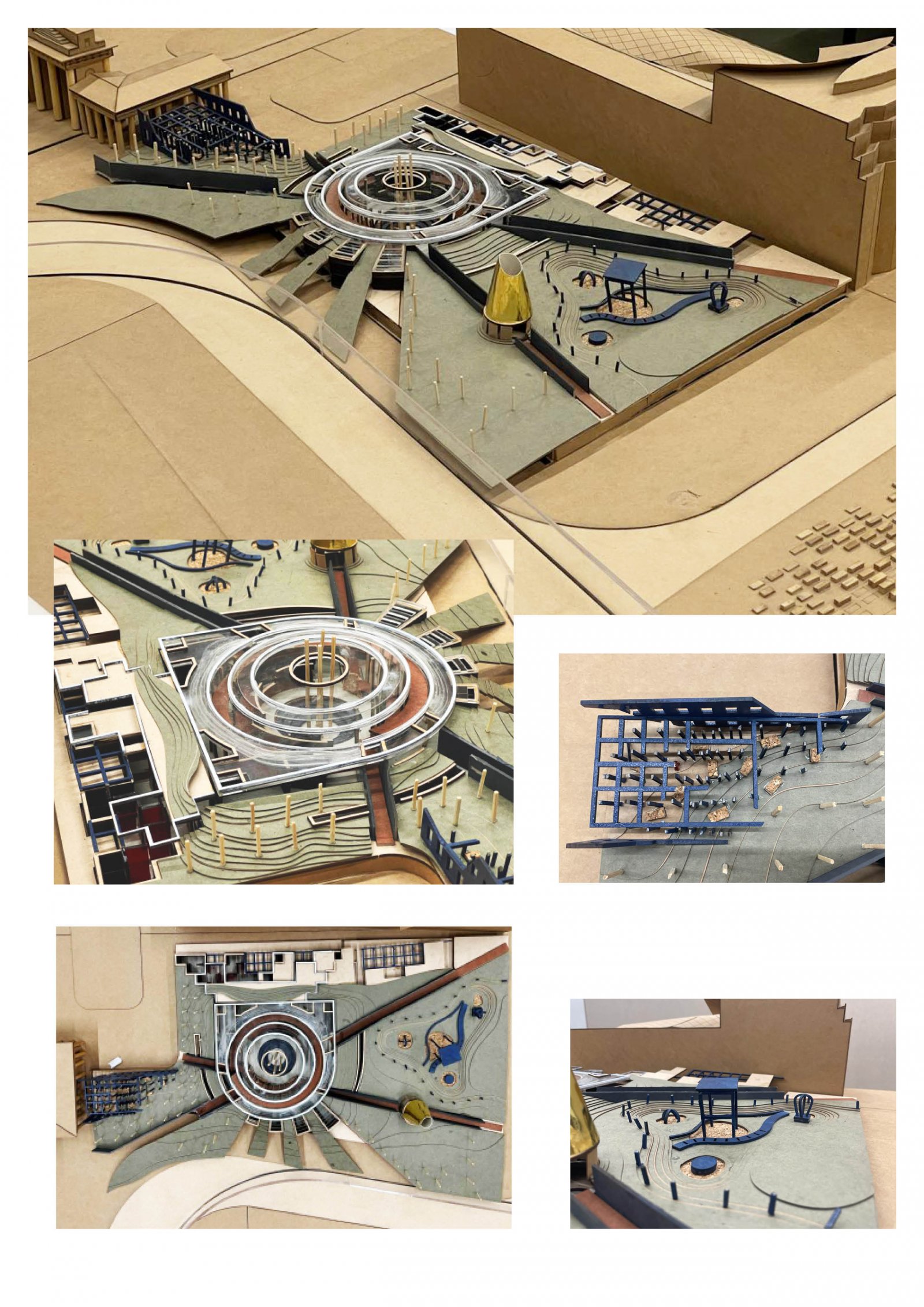- Student Mehta Naomi Nishit
- Code UG180379
- Faculty Architecture
- Unit L3 Studio Unit
- Tutor/s Percy Pithawala
- TA Sneha Lakhani
Bernard Tschumi contests the idea of the architectural machine as an unchanged object in the urban landscape. He proposes a contradicting view, an architecture which is changed by the multitudinous events around it.His architecture becomes the platform for planned and unplanned “human transactions”. It responds to the “heterogeneous complexities of a metropolis”. The urban landscape of berlin has experienced life within the rigid berlin wall, a fracture between the physical and social context of the city. The fall of the wall brought with it the joy, energy and the spirit of unification while also highlighting the contradicting state of the two parts of Berlin, the East and the West. The project site becomes a critical space for an intervention that bridges the gap between the two-part, a place of fluid interactions. The rigid settlements flow into the radial soft scape of the Tiergarten in spirit through the intermediate intervention proximal to the iconic Brandenburg gate. The painful memories of crossing the wall are subdued by the gentle topography on site and the axes emerging on it. While breaking this notion of the horrid memories of the Berlin wall, the spaces enclosed within the contoured landscape become a window to the terrors of history and separation in Berlin. On the ground, the visible elements of fear and supervision are morphed to become elements of play, adding to the undulating landscape. In this process of design, the intrinsic logic of the Manhattan transcripts provides a useful tool to convey the ideas guiding the project. The sequence begins with an evocation of history, a memory from the past that is followed by a series of responses articulated through plans, movement diagrams and perspective views. The multiple parts of the project, while complete within themselves, contribute to the larger narrative of Berlin’s history and create a territory for new imaginations to arise.

